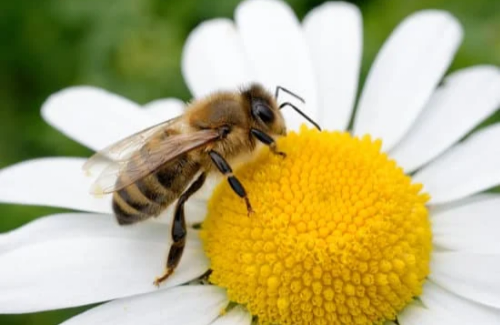In the verdant landscapes of the United Kingdom, bees play a vital role in maintaining the delicate balance of our ecosystems. These remarkable insects are not just a symbol of summer; they are essential pollinators that contribute significantly to our agriculture, biodiversity, and overall environment. However, in recent years, bee populations have faced alarming declines due to various factors, and it is now more crucial than ever for us to understand their importance and take action to ensure their survival.
The Importance of Bees
-Pollination Powerhouses
Bees are among the most effective pollinators on the planet. They facilitate the reproduction of flowering plants by transferring pollen from one bloom to another. This process is critical for the growth of fruits, vegetables, and nuts, which make up a significant portion of our diet. In the UK alone, it is estimated that bees contribute to the pollination of around 70 of the 100 crop species that feed 90% of the world.
-Biodiversity Champions
Beyond agriculture, bees play a crucial role in supporting biodiversity. They pollinate a wide variety of wildflowers, which in turn provide food and habitat for countless other species, from birds to mammals. A decline in bee populations can lead to reduced plant diversity, which can have cascading effects on entire ecosystems.
-Economic Contributors
The economic impact of bees is staggering. According to the UK’s Department for Environment, Food & Rural Affairs (DEFRA), the contribution of bees and other pollinators to UK agriculture is valued at approximately £690 million annually. This figure highlights the economic importance of maintaining healthy bee populations for the sustainability of our food systems.
The Threats Facing Bees
Despite their critical role, bee populations are under threat from various factors, including:
Habitat Loss: Urbanisation, agricultural intensification, and changes in land use have led to the destruction of natural habitats that bees rely on for food and shelter.
Pesticides: The use of chemical pesticides in farming practices can have detrimental effects on bee health, impairing their ability to forage and reproduce.
Climate Change: Shifts in climate patterns disrupt the synchrony between flowering plants and their pollinators, leading to food shortages for bees.
Diseases and Parasites: Bees are susceptible to diseases and parasites, such as the Varroa mite, which can devastate colonies and reduce populations.
How We Can Help Bees Survive
-Create Bee-Friendly Spaces
One of the most effective ways to support bee populations is to create bee-friendly habitats. This can be as simple as planting native wildflowers in gardens, balconies, and community spaces. Bees thrive on a variety of flowers that bloom at different times throughout the year, providing a continuous food source.
-Reduce Pesticide Use
If you are a gardener or a farmer, consider reducing or eliminating the use of chemical pesticides. Opt for organic alternatives or adopt integrated pest management practices that prioritise the health of pollinators.
-Support Local Beekeepers
Buying honey and other bee-related products from local beekeepers not only supports the economy but also encourages sustainable beekeeping practices. Local beekeepers often prioritise the health and welfare of their bees, contributing to the overall stability of bee populations.
-Educate and Advocate
Raising awareness about the importance of bees and the threats they face is crucial. Engage with your community, share information on social media, and advocate for policies that protect pollinators. Supporting initiatives that promote biodiversity and sustainable agriculture can make a significant difference.
-Join or Support Conservation Efforts
Consider joining local conservation groups or volunteering with organisations focused on pollinator protection. Many groups run initiatives to restore habitats, educate the public, and promote sustainable practices that benefit bees.
Bees are not just a charming aspect of the British countryside; they are indispensable to our food systems and the health of our ecosystems. As their populations continue to decline, it is imperative for individuals, communities, and governments to take action to protect these vital pollinators. By creating bee-friendly habitats, reducing pesticide use, supporting local beekeepers, and advocating for bee conservation, we can all play a part in ensuring that bees continue to thrive for generations to come. Let’s work together to keep the buzz alive!

You can join us on our social media pages, follow us on Facebook, X (formerly known as Twitter) and Threads where you can keep up to date with whats going on in South Devon.
Got a news story, blog or press release that you’d like to share or want to advertise with us? Get in touch via email admin@wearesouthdevon.com




























